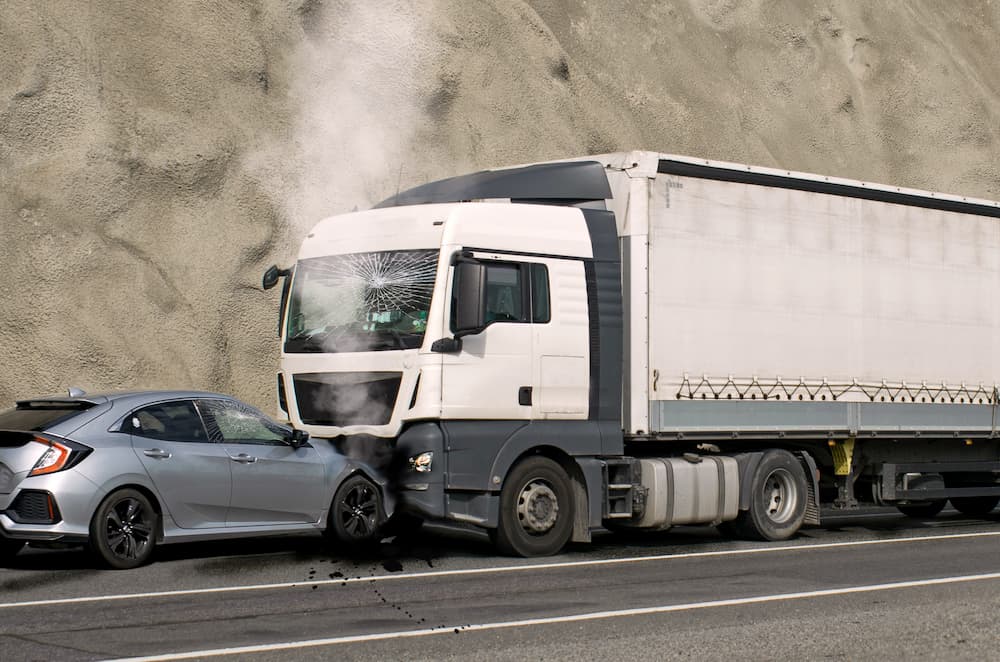First things first: Is everyone safe?
The moment you find out there’s been an accident, your first concern should be for your employee’s safety and the safety of anyone else involved. If the employee calls you, ask if anyone is injured and if emergency services have been contacted. If they haven’t, that’s priority number one.
If you learn about the accident indirectly—say, a call from the police or a third party—try to get in touch with the employee to confirm they’re okay.
Why does this matter legally? Well, it doesn’t—yet. But from a human perspective and a leadership one, you want your people to know you have their backs. And that goodwill goes a long way when these situations get messy.
Your next call: your insurance agent
As soon as possible, call your insurance agent or broker. The sooner they know, the sooner they can start doing what you pay them to do: protect your business.
Here’s what you’re looking to confirm:
Do you have commercial auto insurance? This policy should cover property damage and injuries caused by your employee while driving a company vehicle. It’s a must-have if anyone in your business gets behind the wheel for work.
Do you have hired and non-owned auto coverage? This kicks in if an employee gets into an accident while driving their own car for company business. Think deliveries, errands, or client meetings. This coverage is often tacked on to a general liability policy, but it’s worth checking.
Does your workers’ compensation policy apply? If your employee is injured while driving for work purposes, their medical bills and some lost wages should be covered. But you’ll need to report the incident to your workers’ comp carrier right away.
What should your employee do?
Let’s talk about the employee for a second. What should they do if they’re in a crash while driving a company vehicle?
- Call 911. Even for minor accidents, having a police report on file is key.
- Get medical attention. Some injuries aren’t apparent right away. Encourage them to get checked out.
- Document the scene. Photos of the damage, the road conditions, and any other vehicles involved can be a huge help later.
- Exchange info. Names, addresses, phone numbers, insurance details—standard stuff.
You should also have a process in place at your company for reporting vehicle incidents, ideally in writing. If you don’t have one yet, now’s the time to create it.
What are you (the business owner) liable for?
This is where things can get a little murky. As the employer, you can be held vicariously liable for your employee’s actions while they’re acting within the scope of employment. That’s a fancy legal way of saying: If they were doing something work-related when the crash happened, your company could be on the hook.
Here are a few examples of what that might mean:
- Making a delivery
- Driving to a client meeting
- Running errands for the business
But let’s say your employee was using the vehicle for something not work-related, like running a personal errand after hours. In that case, you may be off the hook. Emphasis on may, because these cases often turn on very specific facts.
Could you get sued?
Short answer: yes. But lawsuits aren’t guaranteed, and having proper insurance in place usually means any claims will be handled—and hopefully settled—by your carrier.
That said, here are some common types of claims that could be made:
- Third-party injury claims. Someone else was injured in the crash and wants compensation.
- Property damage. A car, a fence, a building, etc.
- Wrongful death. In the worst-case scenarios.
- Negligent hiring or supervision. If it turns out your employee had a suspended license or poor driving history, you should’ve known.
This last one is especially important. Always screen driving records for anyone operating vehicles on your behalf. And if you haven’t already, start keeping detailed records of vehicle assignments, driver training, and any prior incidents.
Here are a few other tips to protect your business:
- Train your drivers. Even if you only have one or two people behind the wheel, they should understand safe driving practices and what to do in an accident.
- Keep your vehicles maintained. Poor maintenance can become a liability issue if a crash is blamed on a mechanical failure.
- Document everything. From the moment you find out about the accident, write down what happened, who was involved, and what steps you’ve taken. If there’s ever a claim or a lawsuit, this documentation could be critical.
- Don’t ghost your insurance company. Report accidents promptly. Delays can jeopardize coverage.
The bottom line
Accidents happen, even when you do everything right. But as a small business owner, you don’t have the luxury of being caught off guard. Knowing your insurance coverage, having a clear plan for what to do when an accident occurs, and keeping solid records can make all the difference.
Take time now to make sure you’re prepared. And if you’ve already had an incident? Don’t panic. Follow the steps I’ve outlined, stay in communication, and lean on your legal and insurance professionals to guide you.
Because at the end of the day, your business is about more than vehicles and policies—it’s about people. Take care of them, and they’ll take care of you.





